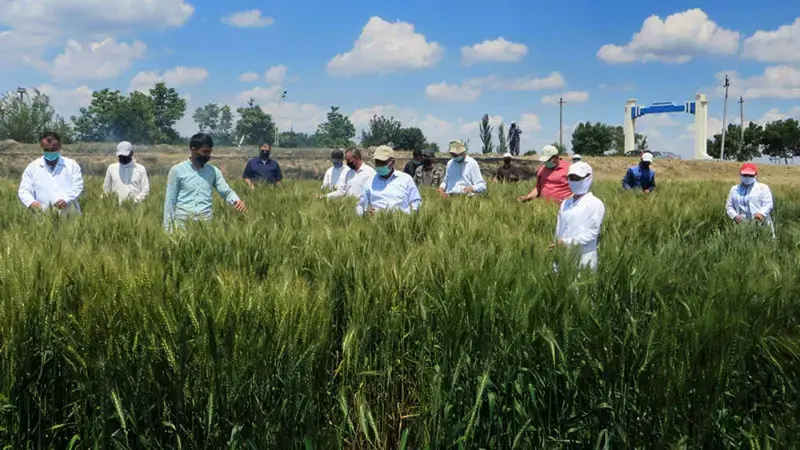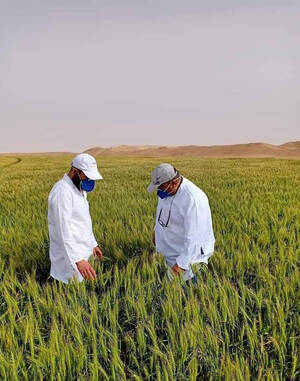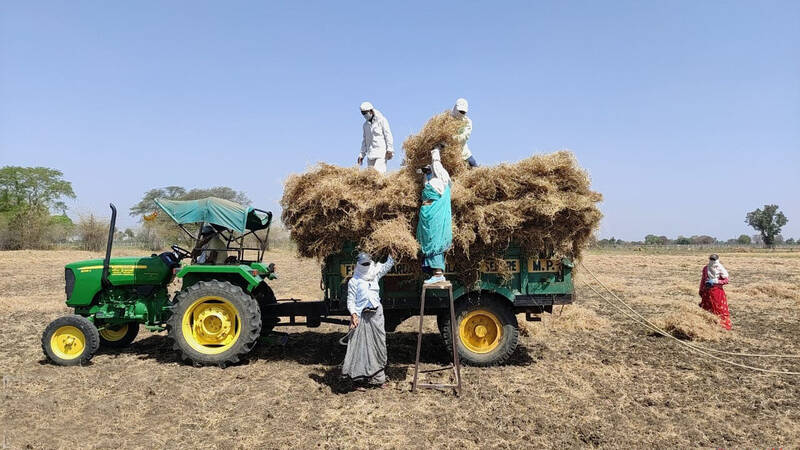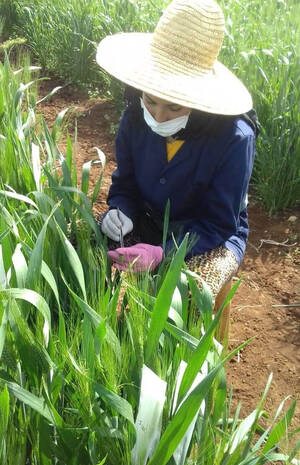ICARDA, CGIAR and COVID-19 - Building Back Better

With our experience rebuilding agricultural infrastructure in post-crises environments in Afghanistan, Iraq, Syria, and Libya, ICARDA well understands how crises can expose weaknesses in national food systems, and how the poor and marginalized are disproportionally affected. So when the COVID-19 pandemic struck the MENA region, we wasted no time in implementing a comprehensive response to make sure that our ongoing work to develop resilient food systems for rural communities in the drylands continued. Research objectives of our donors, partners and stakeholders were met, and important lessons were learned along the way, so that united with other centers under the CGIAR umbrella, we will ‘Build Back Better’ for even stronger food-systems and greater shock resilience in the future.
As the COVID-19 crisis unfolded, a complex range of challenges arose due to lockdowns that while protecting our staff, partners and rural communities, restricted their ability to carry out research, and tend to crops and livestock. Market access and trade of goods for farmers was also reduced, and shipping routes essential for transport for ICARDA’s genetic samples and seeds for research as well as agricultural inputs and technologies for farmers, were severely disrupted. Food security for the rural communities we work with was put at grave risk.
To mitigate these triple shocks of operational, economic, and health issues, ICARDA rapidly brought our teams into fast and effective collaboration with government, National Agricultural Research Systems (NARS), donors and partners, and, most importantly, the dedicated field teams and rural farming organizations who provide ICARDA decision-makers with accurate on-the-ground updates – essential given the constantly shifting nature of the pandemic. This decentralized approach allowed us, through strong teamwork with our partners and the communities we work with, to rapidly adapt to local challenges and changing circumstances, even under lockdowns, curfews and social distancing guidance.
COVID-19’s timeline was especially concerning. March through June is the major harvest season in the MENA region - the key moment when our research comes to fruition, results are gathered, scientific assessment begin and hard-won dryland crops are ready for harvest. Many of these are ICARDA-improved crops adopted throughout the region on which we continue to advise and support. Making sure agricultural production was sustained and market access remained open was crucial not just because of the potential setback to research programs, but also to the food security of thousands of rural communities who depend on ICARDA-improved food-systems.
While COVID’s infection rate slows in many countries, we, along with government partners watch closely for potential, and catastrophic, second waves. Our planning and response continue:
-
Close collaboration with governments, NARS, and rural farming organizations on the ground, ensures actions that mean agricultural production is sustained with minimal disruption to food supply chains.
-
Our work on globally and regionally essential staple crops continued in countries that were under full lockdown such as India and Morocco where ICARDA gained exemptions for key, and courageous, staff.
-
In Lebanon where our International Nurseries nurture seed sets for global research, over 70% of orders have been shipped while continue finding means to navigate existing global transport issues.
-
Our work to collect, conserve and multiply crucial agricultural genetic material in our Genebanks continued throughout, preventing any loss whatsoever of vital biodiversity that enables global research to continue.
-
Staff working from home embraced all the latest video conferencing and online planning tools to ensure efficient management of programs and partnerships all over the drylands of Asia and Africa regions, now and in the future.
-
We have ramped up acceleration of country support in the form of the digitization of their extension services to support climate smart and diversified local production
-
Ongoing consultations with our partner countries that began during full lockdowns continue to ensure seed multiplication for cereals, pulses, and food legumes hit new targets.
-
Contingency and lesson-learning is being implemented with the very same countries in case of second waves and for overall streamlining and improvement of food systems
With the understanding and generous support from our partners, NARS, communities, and above all, our dedicated field staff, ICARDA’s work to improve will continue until the crisis fades and beyond. The experience will change our approach into a new-normal, ‘business-unusual’ model as we integrate new approaches and learning from the crisis. The opportunities that opened up over the last months through the forced experiment of swift planning, the flexible collaborative approach, and new mediums of travel-less communication has positioned us to provide better social safety nets through improved food systems support for rural communities in low-income areas, including through the looming economic crisis and a potential second wave of COVID-19.
Take note. This crisis has stressed the need for an integrated and community-based approach to our work. It may take significant time for the COVID-19 pandemic to pass. But the CGIAR frameworks held steady, and ICARDA is in place to work closely together with all CGIAR centers to Build Back Better, deliver on objectives, and be more prepared to face key long-term challenges such as intensifying climate change, population growth, water scarcity and land degradation at the core of our work. We now know that under extreme circumstances, we can fulfill our own promises to the communities, donors and partners that put their trust in us.



